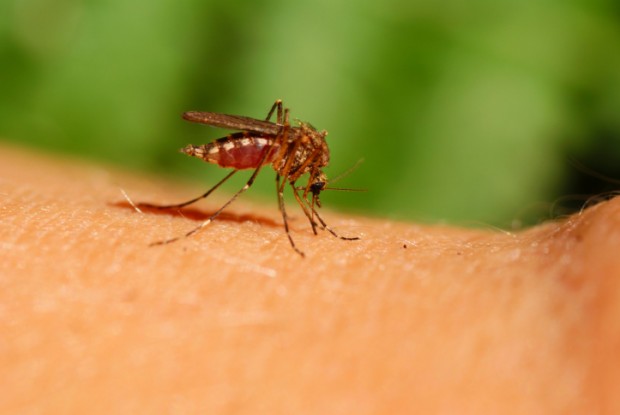It was first discovered in 1937 in the West Nile District of Uganda and the disease has long plagued other parts of the world. Here in the United States, West Nile’s tenure has been more recent. The first confirmed cases began showing up in New York in 1999. Quickly, the disease began to spread and by 2004, it had been found in every state in the landlocked U.S.
Since its appearance in California in 2003, 4007 people across the state have contracted the disease and 145 have died, according to numbers from the California Department of Public Health.
As summer rolls around in California, with it comes the West Nile virus infection season. So far this year, the California Department of Public Health is reporting 19 confirmed cases of West Nile virus. The first case of the season originated in Contra Costa County.
It’s hard to predict a West Nile outbreak or how bad a season will be. Dr. Gil Chavez, deputy director of the California Department of Public Health says that many factors influence the level of West Nile virus activity, including temperature, rainfall, and the number and types of mosquitoes and birds in an area. He adds, that in addition, if an area has not experienced a lot of virus activity in several years, then more birds will be susceptible to infection, which in turn will increase the amount of virus-carrying birds for mosquitoes to feed on.
At this time last year, California was reporting just one confirmed case of the disease, but Chavez says it’s hard to say what the rest of the season might have in store.
“Although more mosquitoes and dead birds have tested positive for West Nile virus this year than last year to date, it is not possible to predict the extent of West Nile virus activity for 2014,” he said.
Most people who contract West Nile, won’t know that they did. Typically it takes between 2 and 15 days from being bitten by an infected mosquito and contracting the virus to see symptoms. Of those who are infected with West Nile, only about 1 in 5 persons will show symptoms, which include include fever, headache, fatigue, muscle pain, and rash.
Fewer than one percent of those who do get West Nile will develop the neuroinvasive form of the disease, in which a patient will contract a serious neurological illness such as encephalitis or meningitis. People age 50 and older have a higher chance of getting sick and are more likely to develop complications.
Of those who do contract the neuroinvasive variant of West Nile, about 10 percent die — usually the elderly and the very young, according to the Centers for Disease Control..
West Nile-induced meningitis helped explain my grandmother’s delusions and confusion. Sometimes she was barely responsive and very weak. She could recognize her family, and later, as she regained some of her strength, could launch into a story from her college day. But more often than not, she seemed lost in space and couldn’t grasp that she was in the hospital fighting off this virus.
After fighting West Nile both in the hospital and at a rehabilitation facility, last September my grandmother suffered a massive stroke and passed away.
In retrospect my grandfather says he should have guessed it was West Nile earlier. Earlier in the week that my grandmother had fallen ill, my grandfather had found both a dead bird and a dead squirrel on their 20-acre ranch in Northern California. Since birds carry West Nile virus, finding dead birds are a clue to the spread of the disease. California's Department of Public Health encourages people to report all dead birds they find. To help track the spread of the disease, Californians are encouraged to report all dead birds by filling out an online form.
Even if my grandfather had alerted doctors of his suspicions, there would have been nothing for them to do. There is no human vaccine or treatment for West Nile. The only real steps are prevention: use insect repellent containing DEET, avoid being outdoors at dawn and dusk when mosquitoes are most active, check your property and eliminate or drain sources of standing water including buckets, birdbaths and pet bowls. Neglected swimming pools also pose a risk.
As to whether the West Nile infection was the cause of my grandmother’s stroke, two of her doctors gave my family a strong yes and two said absolutely not. One thing is for sure: For my family one bite from a mosquito changed everything.
